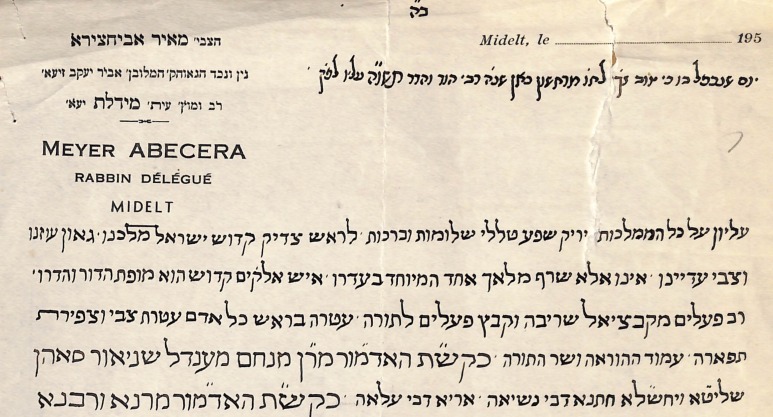A Nightly Reunion: The Unseen Connection Between Two Spiritual Giants
As we mark 40 years since the passing of Baba Sali, a new book unveils his deep connection with the Lubavitcher Rebbe, highlighting their correspondences, shared miracles, and joint efforts for the Jewish people.
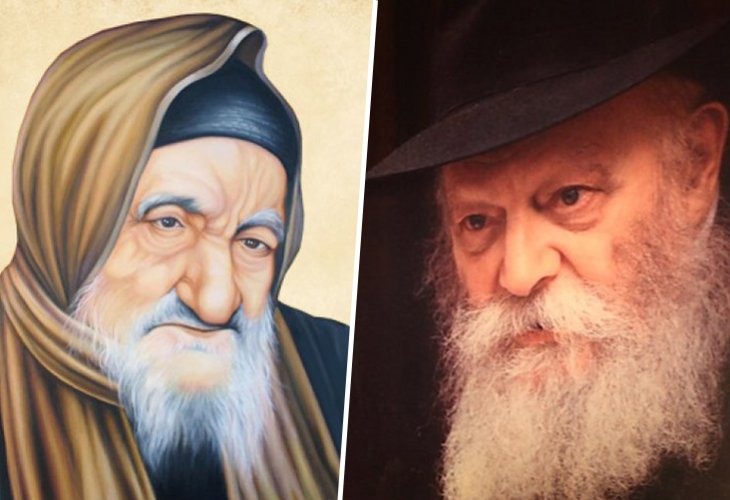 (Photo: Yaakov Nahumi / Flash 90)
(Photo: Yaakov Nahumi / Flash 90)Nearly half a century ago, Rabbi Yeshar Adre‘i, leader of the Beit Yisrael Chabad institutions in Netivot and the young son-in-law of Baba Sali, was on his way to the airport for a trip to the Lubavitcher Rebbe in New York. Suddenly, he was urgently summoned by Baba Sali. "I hurried to him," recounts Rabbi Adre‘i. "I didn't quite understand the urgency since it was unusual for the tzadik to call for someone so early in the day. When I arrived, he simply said, 'Please convey my regards to the Rebbe.' It was then that I realized the depth of the bond between the Lubavitcher Rebbe and the tzadik and how important it was for them to maintain it."
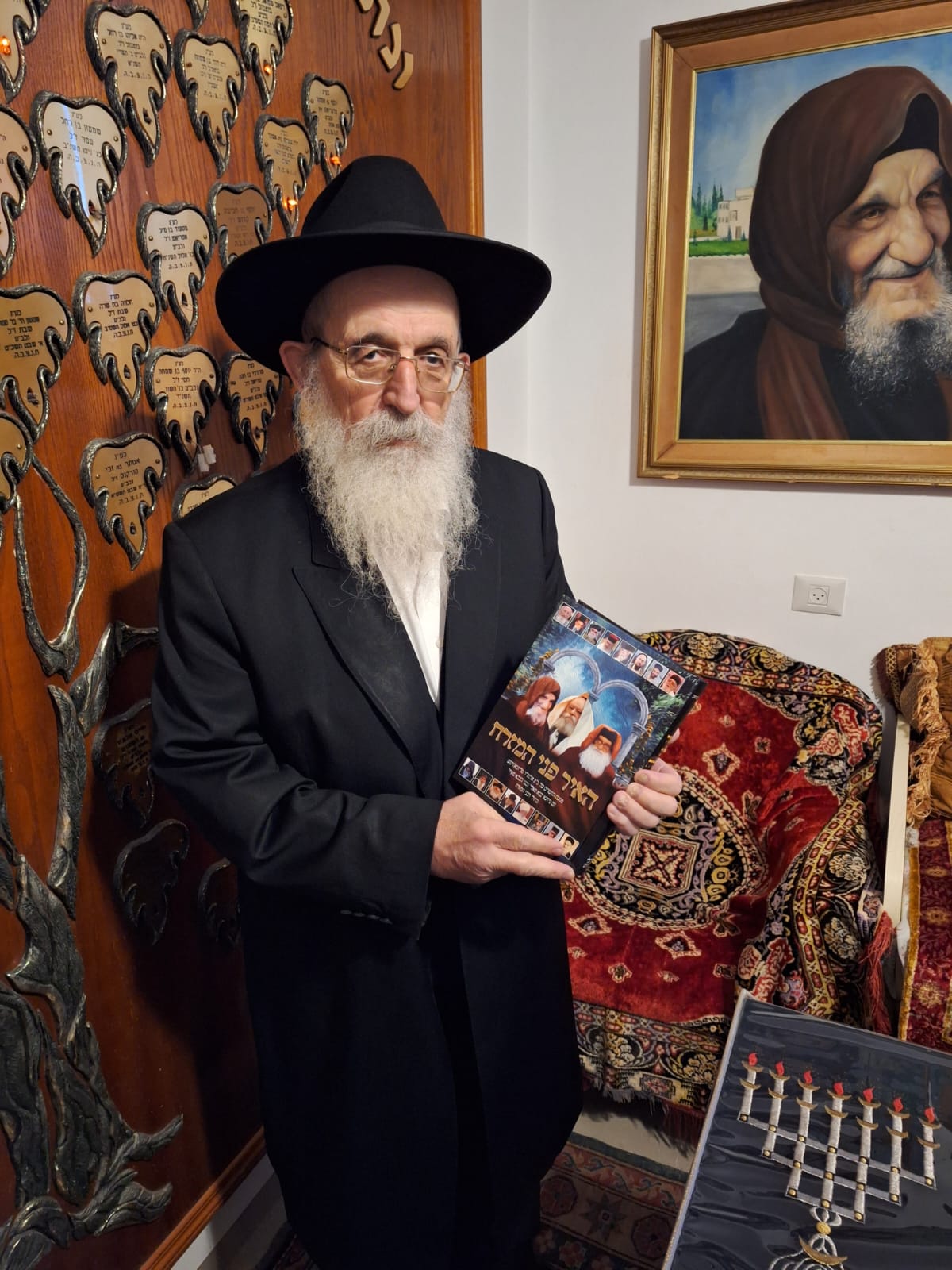 Rabbi Adre‘i with the new book
Rabbi Adre‘i with the new bookThis brief anecdote is featured in a new book, "Illuminating the East," marking 40 years since Baba Sali's passing. It highlights a connection many are unaware of — the link between the Lubavitcher Rebbe and Baba Sali, or in other words, between Chabad and Sephardic Jewry.
Rabbi Shabtai Vintrob, chairman of the 'In the Tents of the Righteous' Institute, wrote the book, dedicating years to exploring the deep ties between figures who seemed radically different on the surface but were closely intertwined — Baba Sali and the Lubavitcher Rebbe, of blessed memory.

From New York to Morocco
How did their connection truly develop?
"My research and documents reveal that the connection began early in the Lubavitcher Rebbe's leadership," Rabbi Vintrob explains. "It started when he sent emissaries to Morocco and Tunisia to save the Jews there from spiritual decline, as foreign educational systems were instated, clashing with Torah values. Baba Sali, living in Morocco at that time, wrote to the Rebbe expressing his desire to leave and sought his advice."
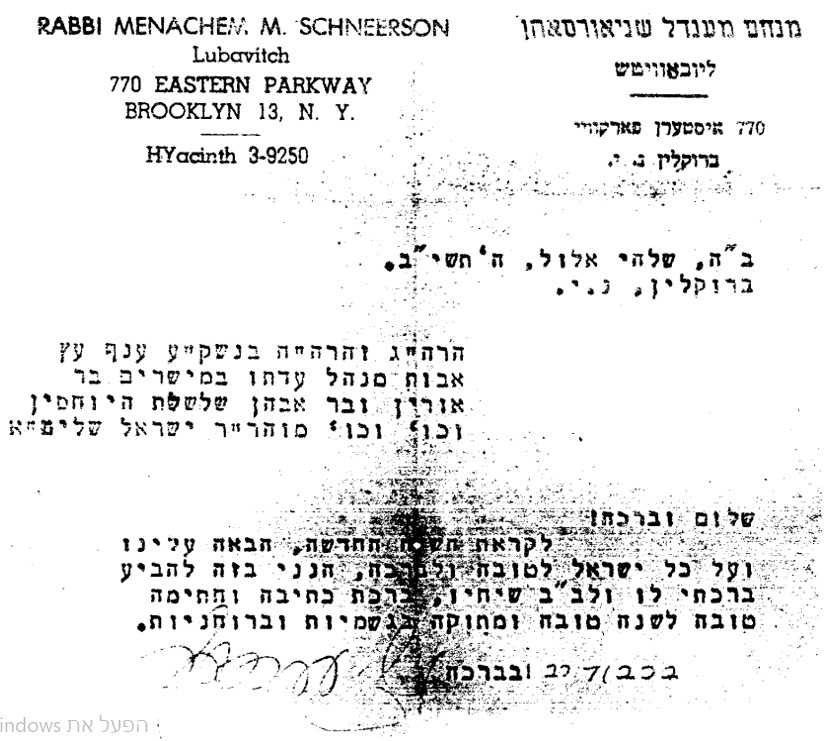
Rabbi Vintrob notes that Baba Sali, beyond being a great miracle worker, was also a significant rabbinic figure in Morocco, so his departure held great meaning for the Jews there. "He sought the Rebbe's opinion on moving to New York. The Rebbe responded in a detailed letter, urging him to stay and lead the Jewish community in Israel. Those 'treasures of his forefathers,' he said, must be used to guide those arriving from Morocco."
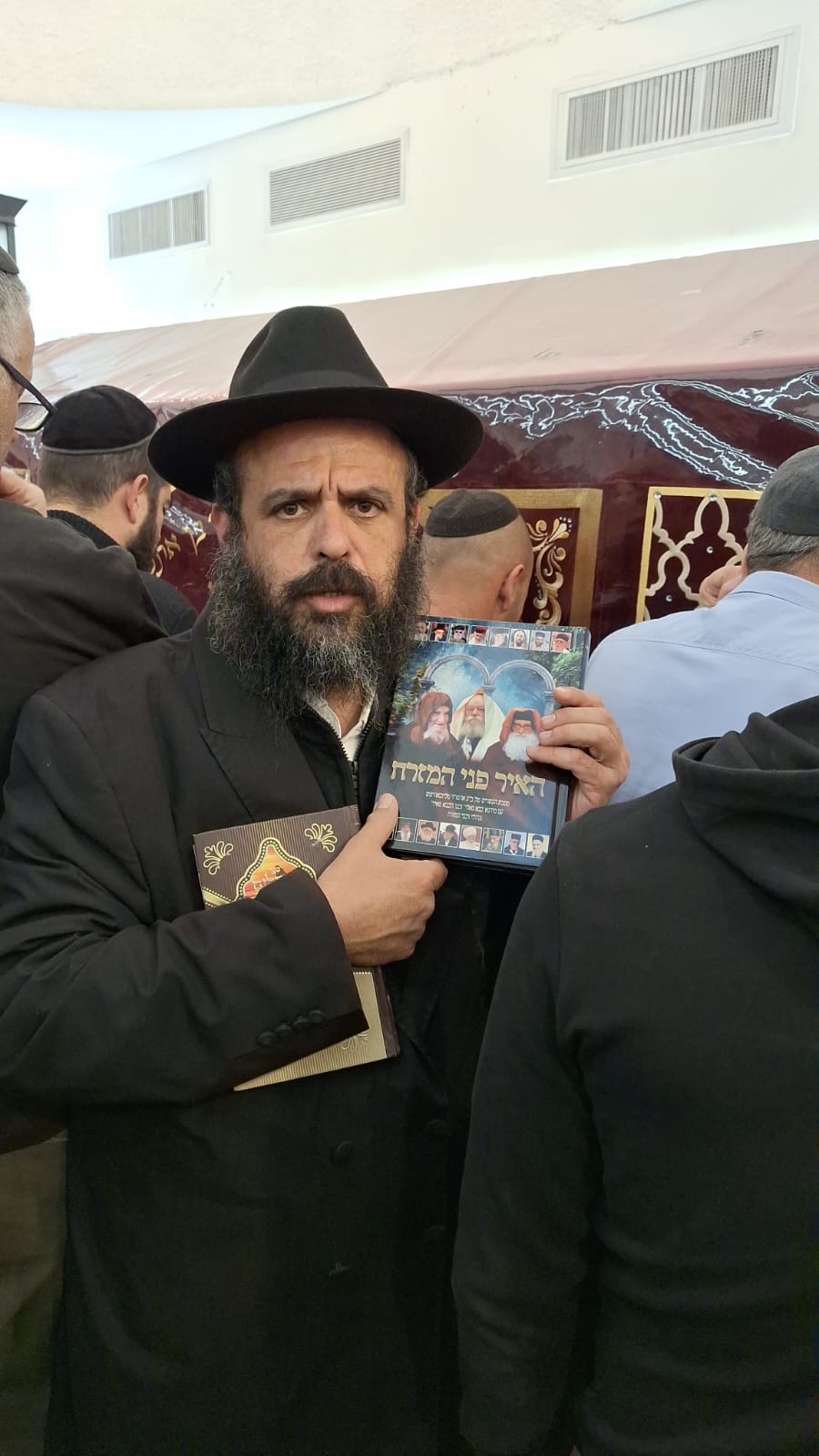 Rabbi Shabtai Vintrob, the book's author
Rabbi Shabtai Vintrob, the book's author"It's difficult to explain how these two tzadikim were spiritually connected, having never met," Rabbi Vintrob continues. "According to Baba Sali's assistant, Rabbi Avraham Mughrabi, Baba Sali often claimed, 'I meet with the Lubavitcher Rebbe every night.' In particularly tough situations with blessings and complex questions, Baba Sali would ask his aides or family to share the matter secretly with the Rebbe."
Rabbi Vintrob highlights that Baba Sali's connection led to a warm relationship between the Lubavitcher Rebbe and other Sephardic sages. During his research, he aimed to document these connections with detailed stories, photos, and rare documents never seen before."
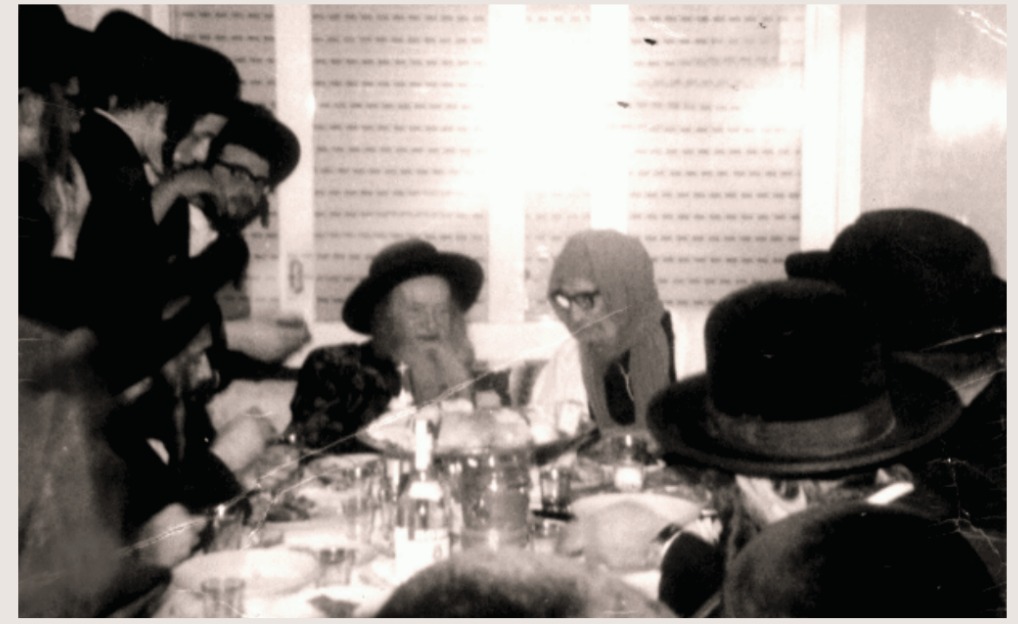 Baba Sali hosting the Rebbe of Lelov for a joint tish
Baba Sali hosting the Rebbe of Lelov for a joint tish
Carrying On the Legacy
Baba Sali was a figure of spiritual wonder, and his ties with the Lubavitcher Rebbe led to numerous miraculous stories. "One time," Rabbi Vintrob shares, "a scholar approached the Rebbe seeking a blessing for children. The Rebbe advised him to study family purity laws. The man thought it was just a routine suggestion. Later, when he sought Baba Sali's blessing for the same, Baba Sali probed if he'd sought others' blessings and urged him to adhere to the Rebbe's advice and see wonders unfold, which indeed happened."
Rabbi Vintrob notes that a year after the Yom Kippur War broke out in 1973, Baba Sali remarked that a dire decree on Israel had been averted by the Lubavitcher Rebbe and diverted to a neighboring country, presumably Lebanon, where civil anarchy indeed erupted that year.
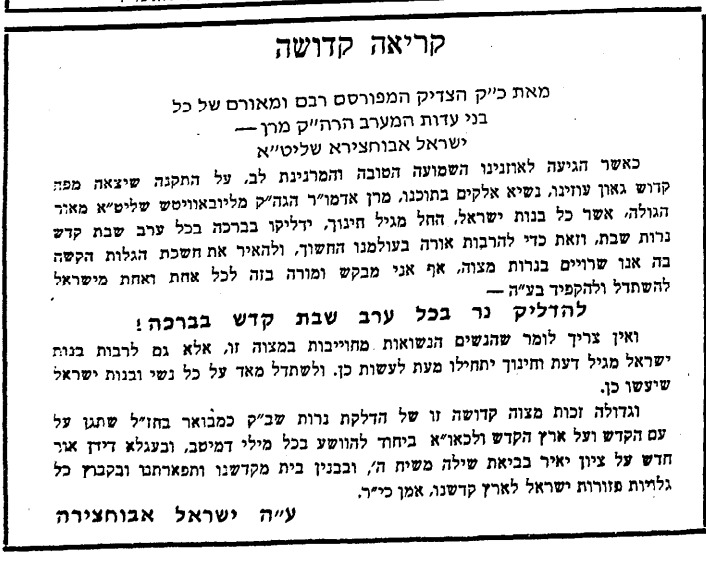
The bond between Chabad and Baba Sali was marked by celebrations of Chassidic holidays with special feasts in Baba Sali's home in Netivot. He treasured all the works of the Tania's author, with insights added by the Lubavitcher Rebbe. "I even found documents proving Baba Sali's collaboration in campaigns initiated by the Rebbe, like encouraging Shabbat candle lighting," Rabbi Vintrob shares excitedly.
How do you explain the secrecy of this warm relationship between Baba Sali and Chabad?
"It’s inaccurate to say it was a secret. People knew about the spiritual connection between the Lubavitcher Rebbe and Sephardic sages, but the depth of that bond wasn’t widely recognized. That's why we decided to compile the 600-page book, to shed light on this rich Jewish history. I'm proud to help share it with the world."
